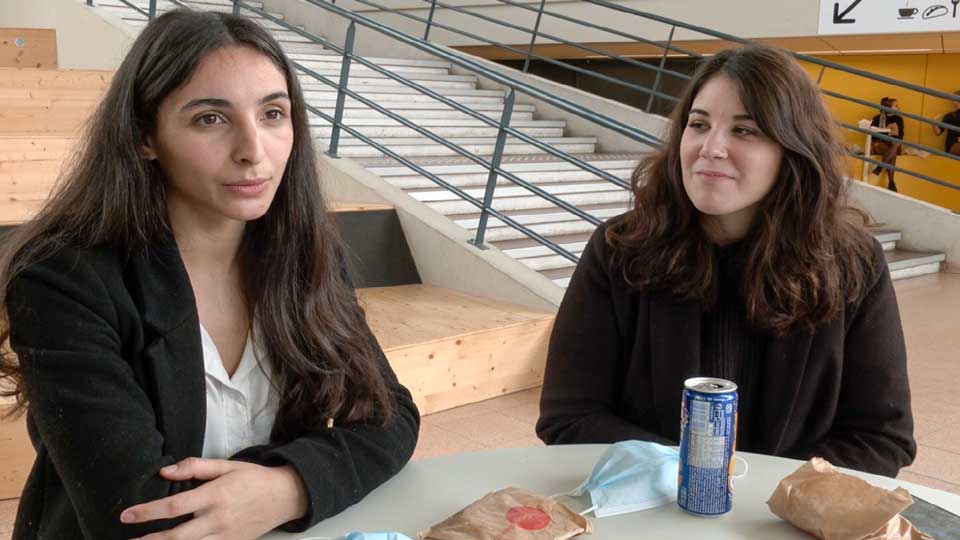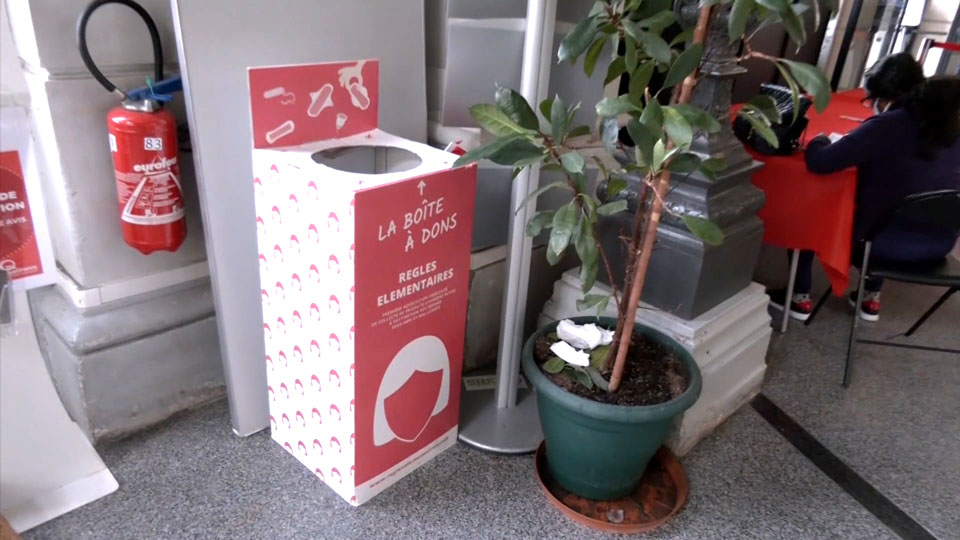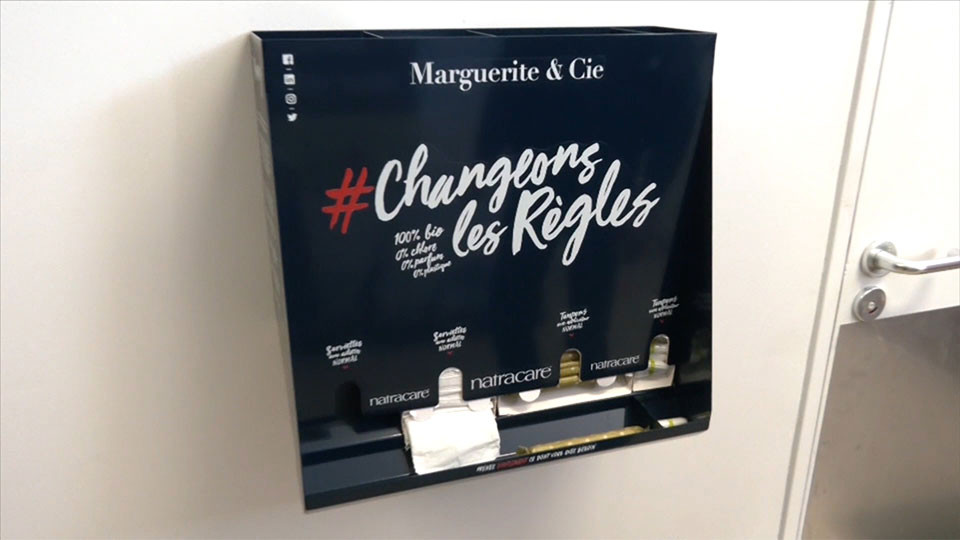When a university in the city of Rennes ran a contest to come up with ideas for improving university life, students Lola Renault and Johanna Courtel suggested handing out free out hygiene products on campus. They won, and now, backed by the university, that's exactly what they do. The idea was born out of Renault's own experiences as a freshman, when she was living away from home for the first time. Her only sources of money were a scholarship and a part-time job and she could not always afford sanitary pads. Instead, she would make do with folded wads of toilet paper.
"Not having pads was like not having food in the fridge," Renault says. "Sometimes I had to skip classes because I only had one pad left."

Renault's effort isn't the only grassroots project aimed at providing greater access to menstrual hygiene products. Règles Élémentaires, a Paris-based non-profit, has set up donation boxes in workplaces, city offices, and other public places around the country. Tara Heuzé-Sarmini, the founder and president of the organization, says she hopes to bring the issue of period poverty to wider attention.
"People need to recognize that period poverty is a problem facing many women," she says, "not only the homeless, but also students and single mothers."
Their works seem to have paid off in that regard. In February, President Emmanuel Macron announced that all female university students in the country would receive free menstrual hygiene products by the beginning of the new semester in September. The government is funding the program with part of a five million euro allocation it has set aside specifically to tackle period poverty in 2021. Universities across the country are now preparing for the rollout by installing distribution points.
This isn't the first time the price of menstrual hygiene has become a public issue in France. In 2015, women around the country took to the streets and called for cuts to taxes on sanitary products. At the time, these items were not considered daily necessities and were subject to the same 20 percent tax rate levied on alcohol and cigarettes. The government changed the classification later that year, and now sanitary products are subject to a 5.5 percent tax.
Marie-Paule Noël is a member of Georgette Sand, one of the groups that led the protest movement six years ago. She says she is happy to see the issue of period poverty getting the attention it needs.
"At that time, people didn't even talk about periods," Noël says. "We've demonstrated we can change things by speaking out in public."

Meanwhile, Renault says it's not just the government that seems to be waking up. She says she is seeing signs of a shift in societal attitudes toward the issue. She says male students are asking if they could receive sanitary products for their sisters or girlfriends. Renault believes her efforts, and other social movements, have made it difficult for them to remain indifferent about period poverty.
"We have succeeded in democratizing periods by changing the way society views them," she says. "We will continue to work to break social taboos over the subject."

